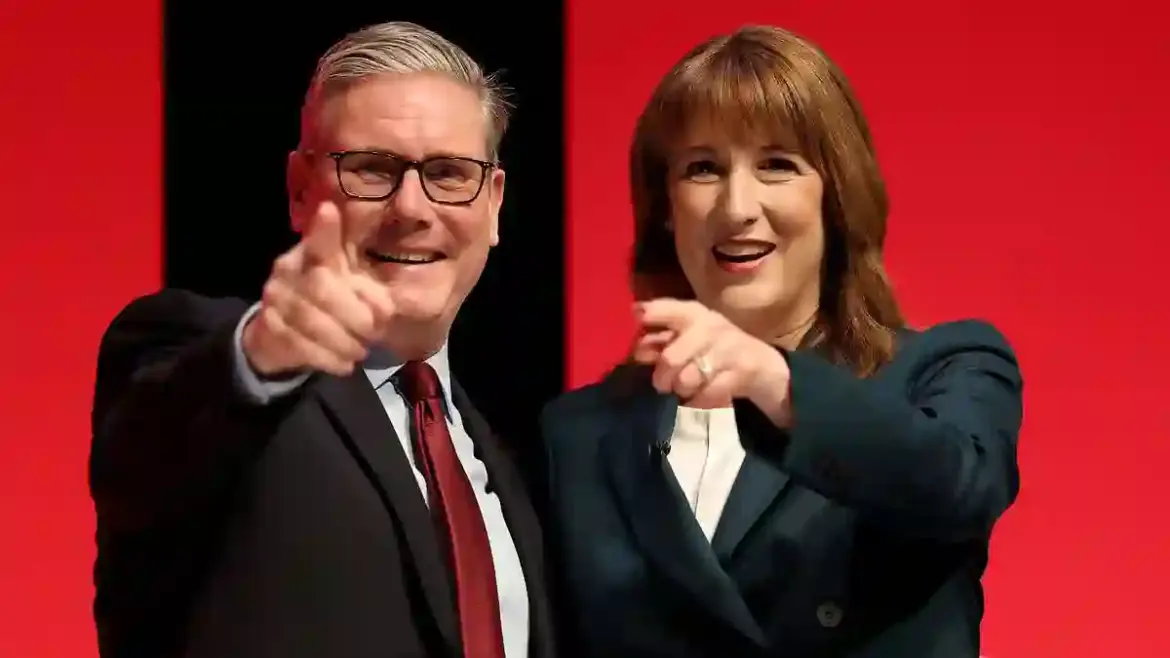Britons were jolted yesterday as Chancellor Rachel Reeves hinted at possible tax increases, putting the middle classes on alert.
In a surprising reversal, Reeves stepped back from her previous pledge not to raise taxes, explaining that “the world has changed” and circumstances demand a fresh look at the country’s finances.
The Chancellor’s comments, coupled with Prime Minister’s Chief Secretary Darren Jones refusing to rule out a VAT increase in the upcoming Budget, have sparked intense speculation about the future of household finances across the UK.
VAT Under the Microscope
Whitehall insiders have revealed that the Treasury is actively considering expanding VAT to services that are currently exempt.
Private healthcare and certain financial services are reportedly in the firing line.
Introducing VAT on private healthcare alone could raise up to £2 billion, but would affect as many as eight million middle-class families.
The government is also exploring whether to lower the threshold at which small businesses must register for VAT, despite repeated calls from the sector to raise the limit to foster growth.
One source explained: “Raising the headline VAT rate would be difficult given past promises, but broadening the VAT base could generate significant revenue.
We’ve seen it with private school fees, and now private medical insurance could be next.”
Political Tensions Escalate Within Labour
Labour Party dynamics are adding fuel to the fire. Sir Keir Starmer is set to warn about tax pressures in his keynote conference speech, emphasizing that rebuilding Britain “requires decisions that are not cost-free or easy.”
Meanwhile, Reeves suggested higher betting taxes to fund lifting the two-child benefit cap, noting that gambling firms “could pay more.”
Divisions are also emerging on foreign policy and domestic spending.
Andy Burnham wavered on his leadership ambitions after Reeves criticized his spending plans, while activists defied Starmer to condemn Israel’s actions in Gaza.
Reeves further called for a new “youth mobility” deal with Brussels, as Burnham hinted Britain might rejoin the EU in his lifetime.
Business Community and Public Reaction
Last November, Reeves tried to calm concerns over her £40 billion Budget plan, promising it was a one-off and that she would not return with more taxes or borrowing.
But yesterday, she acknowledged to the BBC that “the world has changed” and hinted at the need for additional measures.
In her Liverpool conference speech, Reeves suggested that further tax increases may be on the horizon while urging citizens to trust her economic stewardship.
She stated: “In the months ahead we will face further tests, with the choices to come made all the harder by harsh global headwinds and the long-term damage done to our economy.”
Critics Warn of Rising Financial Pressure
Shadow Chancellor Sir Mel Stride warned that nothing is safe under Labour, claiming: “Rachel Reeves says she won’t risk the public finances, but she’s already doing that – with more borrowing, higher spending, and more taxes.”
Labour has already raised taxes by £40 billion per year, including £25 billion on jobs, and refuses to rule out further hikes.
VAT Pledge Appears in Jeopardy
Labour’s 2024 manifesto pledged not to increase VAT, income tax, or National Insurance to protect working people.
Yet in recent days, both the Prime Minister and Chancellor have stopped short of committing to this tax lock, suggesting that the upcoming Budget could see changes.
Darren Jones noted: “The Budget is not until November 26, so we’re not going to announce decisions today.
The manifesto stands because decisions haven’t been made yet.”
Former Labour leader Neil Kinnock has publicly advocated for VAT on private medical insurance to fund public services, a move that would impact millions who rely on private healthcare due to concerns about the NHS. The Treasury declined to comment.
